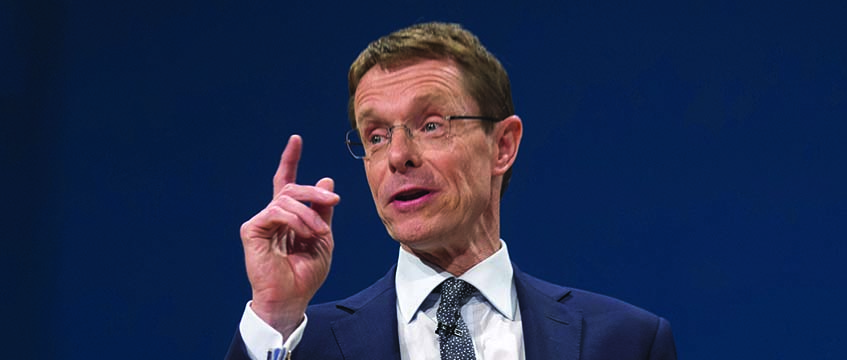BUDGET 2017 While some parts of the country are still trying to agree their first devolution deal, the West Midlands Combined Authority has negotiated a second, as was announced in yesterday’s Budget.
Details of the deal emerged overnight with housing, technology and transport at the forefront. Money for a housing delivery team to help the West Midlands provide 200,000 new homes by 2031, the creation of a digital hub, and a commitment to the region’s role as a global centre for new automotive development such as electric and driverless cars were all included.
Another boost came with confirmation of £250m towards the extension of the Midland Metro light rail service from Wednesbury to Brierley Hill which could open up land for residential development.Andy Street, mayor of the West Midlands, said in a statement that the second deal was an important step forward in enabling the region to create and sustain growth. “This deal sets out our intention to produce a local industrial strategy, which alongside the forthcoming housing deal will produce a joined-up approach to jobs, housing, skills and transport investment.
“The support for automotive technologies is particularly important. The West Midlands has the potential to lead the world in this future industry. We are in a global race and need the full support of the government if we are to win it.”
Street added that the combined authority had ambitious plans to work alongside Coventry City Council, Coventry and Warwickshire Local Enterprise Partnership and the University of Warwick to return car production to Coventry.
David Smeeton, head of investment at Cushman & Wakefield, says the second deal was positive news for the West Midlands and believes Andy Street should take the credit: “There hasn’t been a great deal of dialogue between the West Midlands area and central government, but Andy has been doing that. We wouldn’t have the second deal without Andy Street.”
The Midlands has a real opportunity to be at the forefront of [the driverless cars] sector that is very much on the government agenda and set to grow exponentially over the next few years.”
He welcomes the commitment to the West Midlands’ role as a global centre for new automotive development, saying: “If we have a specialist subject then it is cars and I guess that is good news. I think that [autonomous and electric vehicles] is something that is going to come far more quickly than people realise.”
And James Cubitt, head of Colliers International’s Birmingham office agrees: “As an electric car driver myself, I realise the importance they play in our future and the Midlands has a real opportunity to be at the forefront of a sector that is very much on the government agenda and set to grow exponentially over the next few years.”
Tech and digital investment was also a theme in the budget with chancellor Philip Hammond announcing £500m investment in the development of 5G, fibre broadband and artificial intelligence. Part of the West Midlands’ second devolution deal is the creation of a digital hub. Cubitt says: “I can see an area like Digbeth becoming a hotspot for tech companies as a city fringe location.”
Is lack of a deal leaving parts of the country behind?
It is telling that most places given specific focus in chancellor Hammond’s Budget have a devolution deal. It is also telling that half the money allocated in the Transforming Cities Fund is going to regions with such deals.
Simon Jeffrey, policy officer at Centre For Cities says: “The clear inference is that places like Leeds and Nottingham, that hadn’t got a deal together or haven’t been pushing for it, are being left behind. Who can the government call and who can they do business with?”
He adds that mayors have accountability, if something goes wrong – “they carry the can”. This is reassuring for central government and fosters a level of trust. “Those places that don’t have a mayor need to get on track and get a mayor in place in order to take greater control over their local economy. These other places are pulling away.”
The next devolution deal
Tomorrow morning, the details of the North of Tyne devolution deal will be announced. Newcastle, North Tyneside and Northumberland have been working together to secure a deal ever since initial proposals which included Gateshead, Sunderland, Durham and South Tyneside failed to get enough support.
Simon Jeffrey, of the Centre for Cities says this should be a stepping stone as a deal including the other councils will bring greater benefits. “The North East economy doesn’t stop at the Tyne and to ensure policies for jobs and growth, those [devolved] powers need to be across the Newcastle city region.”
He adds that the Tyne and Wear Metro has been given a £300m investment boost and the devolution deal should cover the geography of that transport system.
Click here for all the news, data and analysis affecting real estate in the Budget
To send feedback, e-mail stacey.meadwell@egi.co.uk or tweet @EGStaceyM or @estatesgazette












